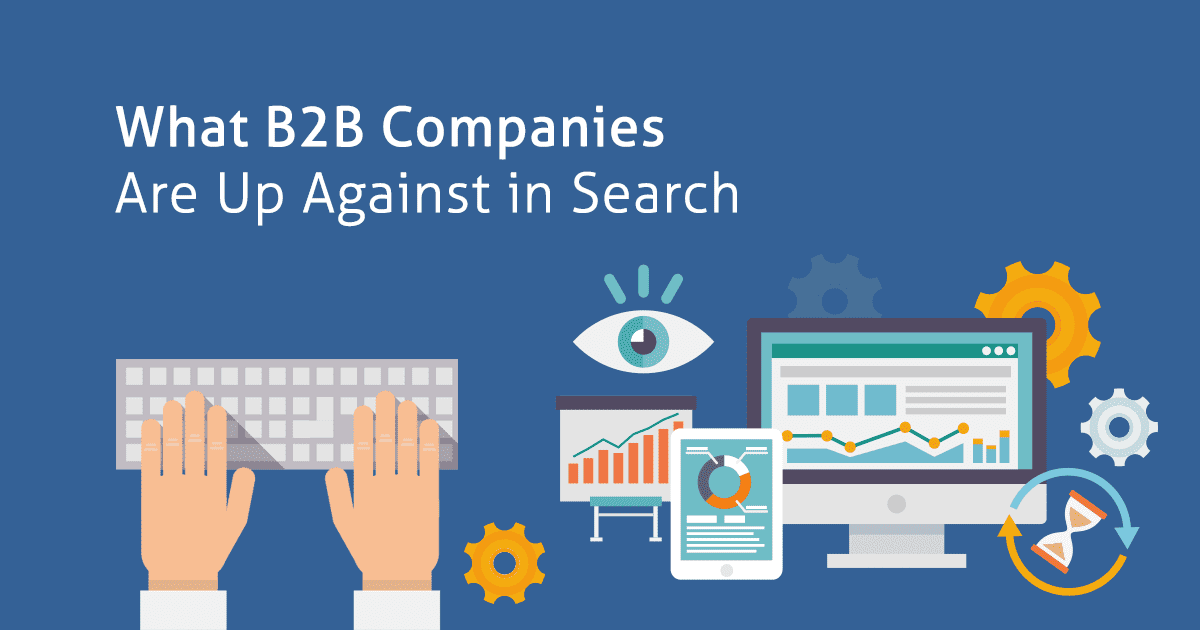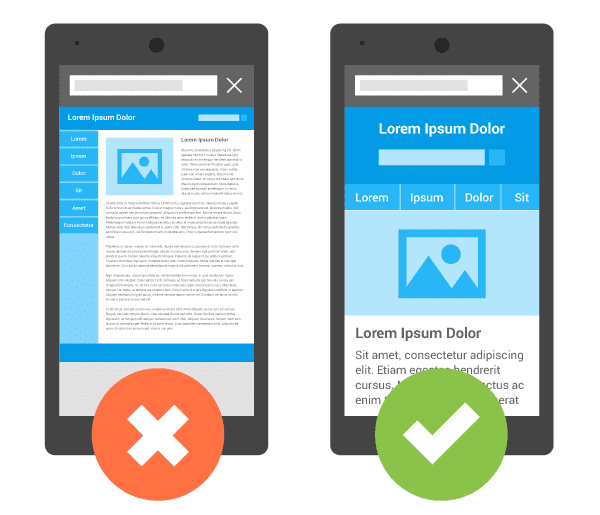We’re all living in an online-driven world, and B2B marketing tactics are not more sheltered from this than consumer-facing ones.
In the age of the internet, and the fast pace at which people shop and make decisions online, competition is fiercer than ever. Many B2B marketers wonder if they’re doing all they can, or if they’re being squashed in the race to gain attention online.
Following is our roundup of the most common hurdles for B2B marketers in their fight to gain ground in search.
How’s your data?
First, that data thing. Ah, so many companies talk about big data this, big data that! Yet, they lack the tools (and perhaps the teams) to accurately capture and analyze the data in the first place.
The challenge is, before you can start making smart decisions about your search and broader digital strategy, you need data you can count on.
B2B marketers need to consider how they’re tracking visitors, prospects, qualified leads and customers, as well as individual marketing channels.
Such as considering the need to build in rules like requiring users to enter a valid work email address and/or limiting the number of fields to only the most essential. This could potentially help eliminate some fake data entered on your website.
Track your customers!
We’re not just talking about in the “data analysis” sense, we’re talking about now, in this moment.
Are you tracking your customers? If not, your competition may be.
Local search marketing tactics are heavily used in consumer businesses, but they’re just as relevant in B2B. You should have a clear understanding of how your customer finds you online, interacts with your ads and then the physical component—if they walk into your store or give you a call.
Marketing to a Mobile-First audience
Mobile is a game changer, for all businesses. No business should leave mobile commerce on the table.
More search usage continues to shift to mobile devices, with Google reporting that in some cases over 50% of all search queries are conducted on a mobile device. With mobile search traffic growing 200% year over year, you’d have to be out of your mind to miss out.
Unfortunately, many B2B marketers scratch their head over what to do with mobile. It all kicks off with a mobile-friendly website. Second, you must develop mobile-friendly solutions to aid in your sales efforts, such as apps, CRM solutions and more.
Generate content that doesn’t suck.
Content is king, but many companies forget that just because they’re a business, it doesn’t mean that they have to come at their audience in a robotic, generic manner.
So, what makes great content? According to Kissmetrics:
- Creating original content
- Focusing on strong headlines
- Providing actionable content. This gives users a sense of how to apply your information by providing assurance on how to use the material.
- Being able to provide answers.
- Ensure accurate reporting and sourcing of your information
- Adding images and video
- Updating your website or blog continuously
Business content should be rich, engaging and useful. Remember, at the end of the day you’re speaking to a human.
The complex search audience: B2B
You may have noticed: things get a wee bit tricky with B2B audiences.
- Reach: You need to reach people at the core of their business needs, not necessarily their personal ones—though, these interests may overlap.
- The Multiple Device Challenge: Some business folks use smartphones and computers exclusively for work, and others use their devices for both work and personal needs.
- Targeting: People tend to have a different mindset at work than at home. They can be harder to reach! They may be busy, focused on work or just less receptive overall. Targeting is challenging (yet still crucial) with B2B, and this is where many marketers flounder.
Longer sales cycles…
Of course, this isn’t always the case; it depends on your business. But hefty business product/service price tags, a chain of command and contracts tend to extend the deal by days, weeks or months.
It’s safe to say – there are very few impulse buys in B2B. As it relates to search marketing, marketers need to have ample patience as it may take many months for search leads to convert.
And possibly higher CPCs
B2B marketing comes with a smaller audience size and a smaller search volume pool.
This can result in fairly high CPCs. Businesses may be willing to throw a heck of a lot of money at fewer terms, driving up the prices.
At the same time, the audience may completely tune you out until they are ready to make a move (you know, that complex audience thing). Many marketers may resort to focusing on high intent keywords, which – you guessed it – can be pricey.
Let us know if you have questions, or are interested in a demo to see how we can overcome your B2B search marketing challenges, together.




